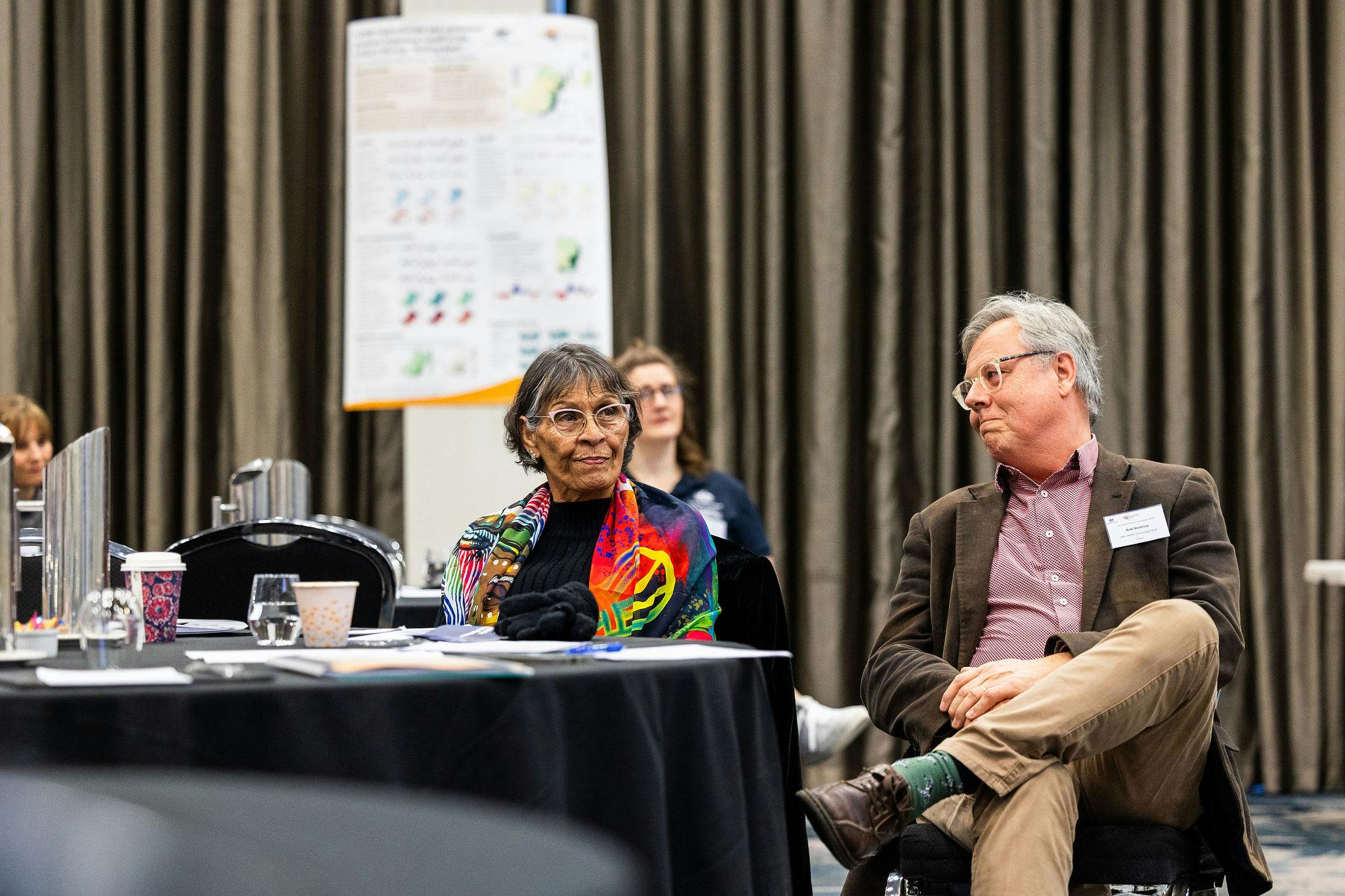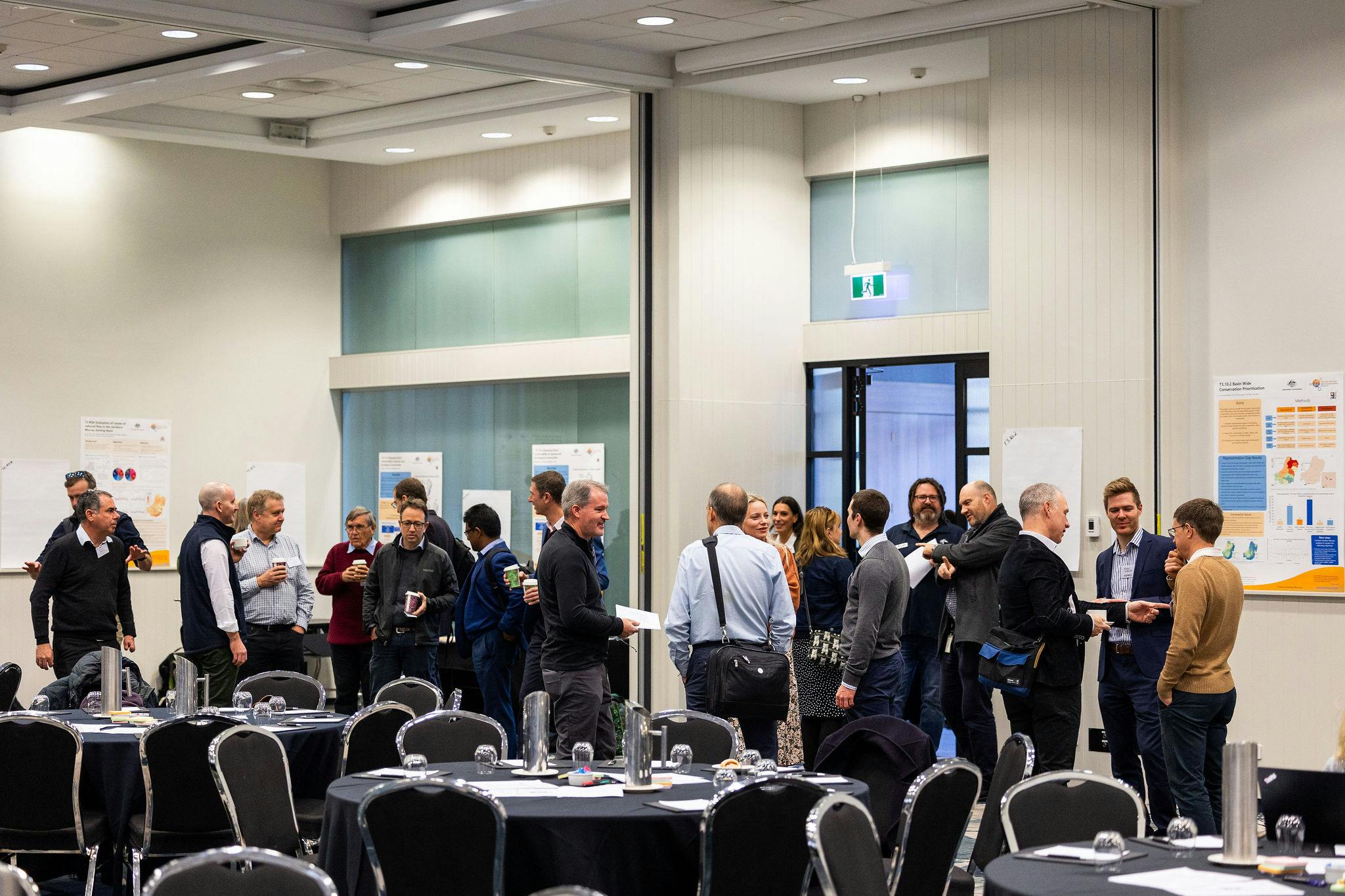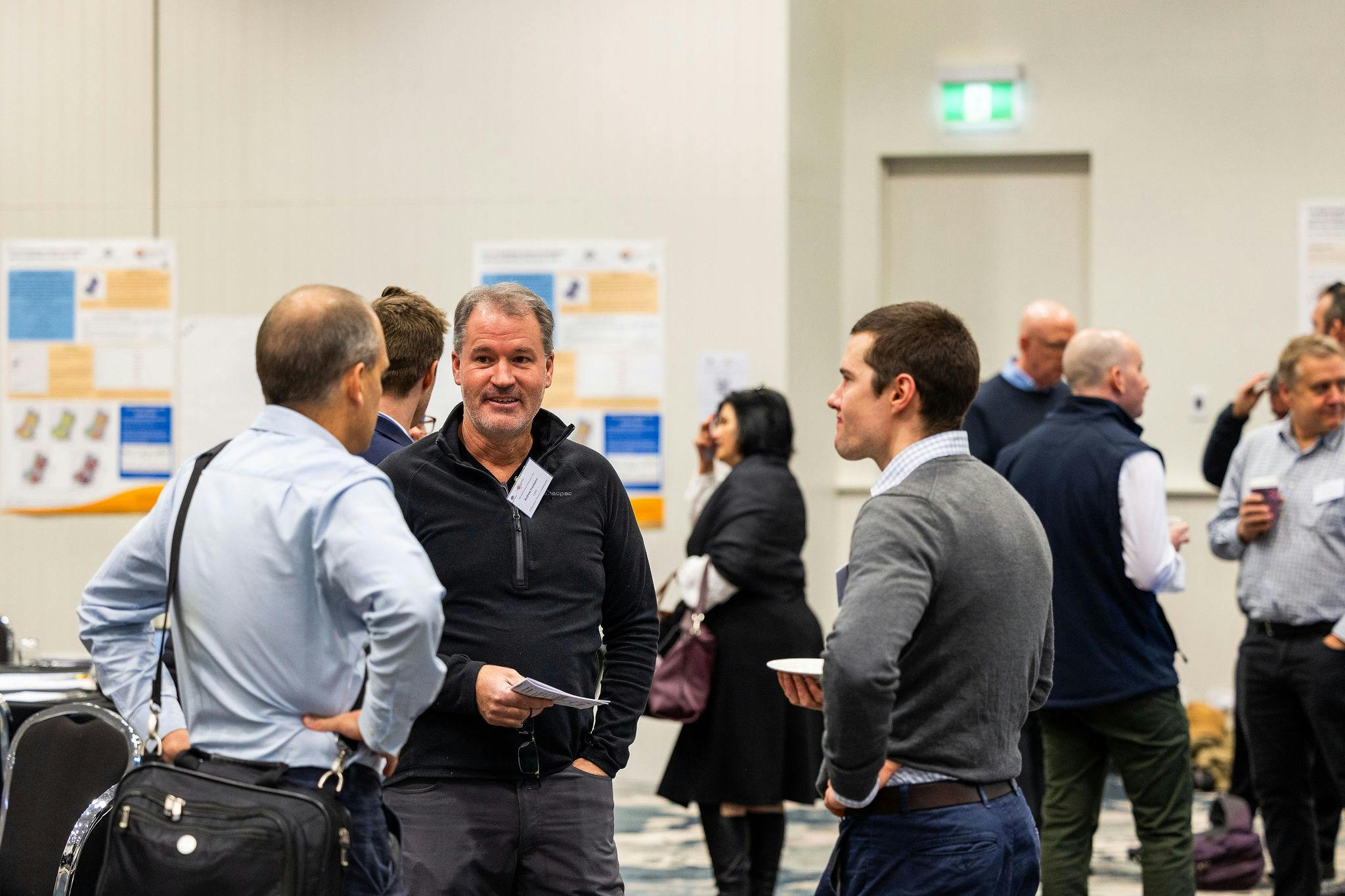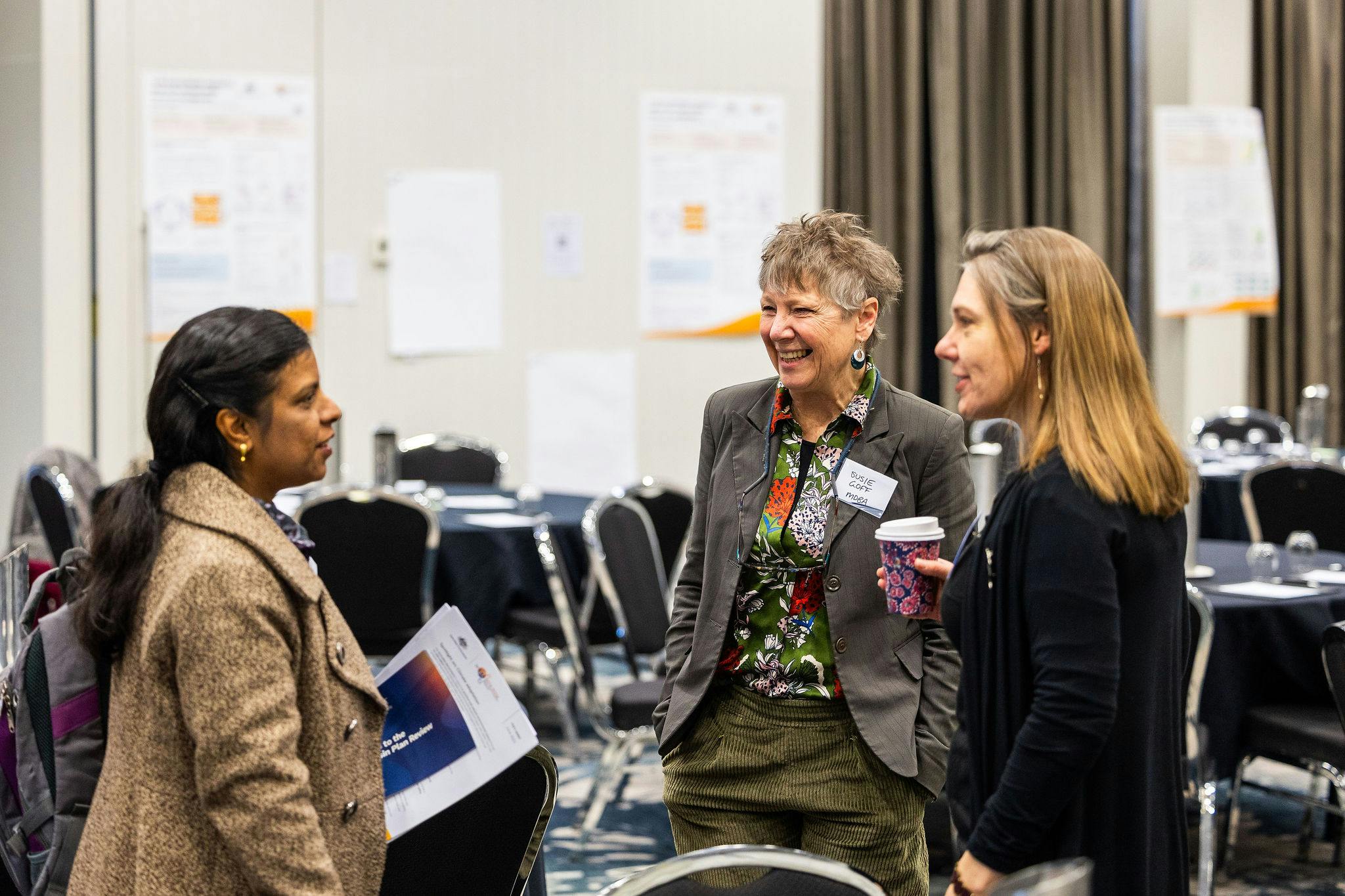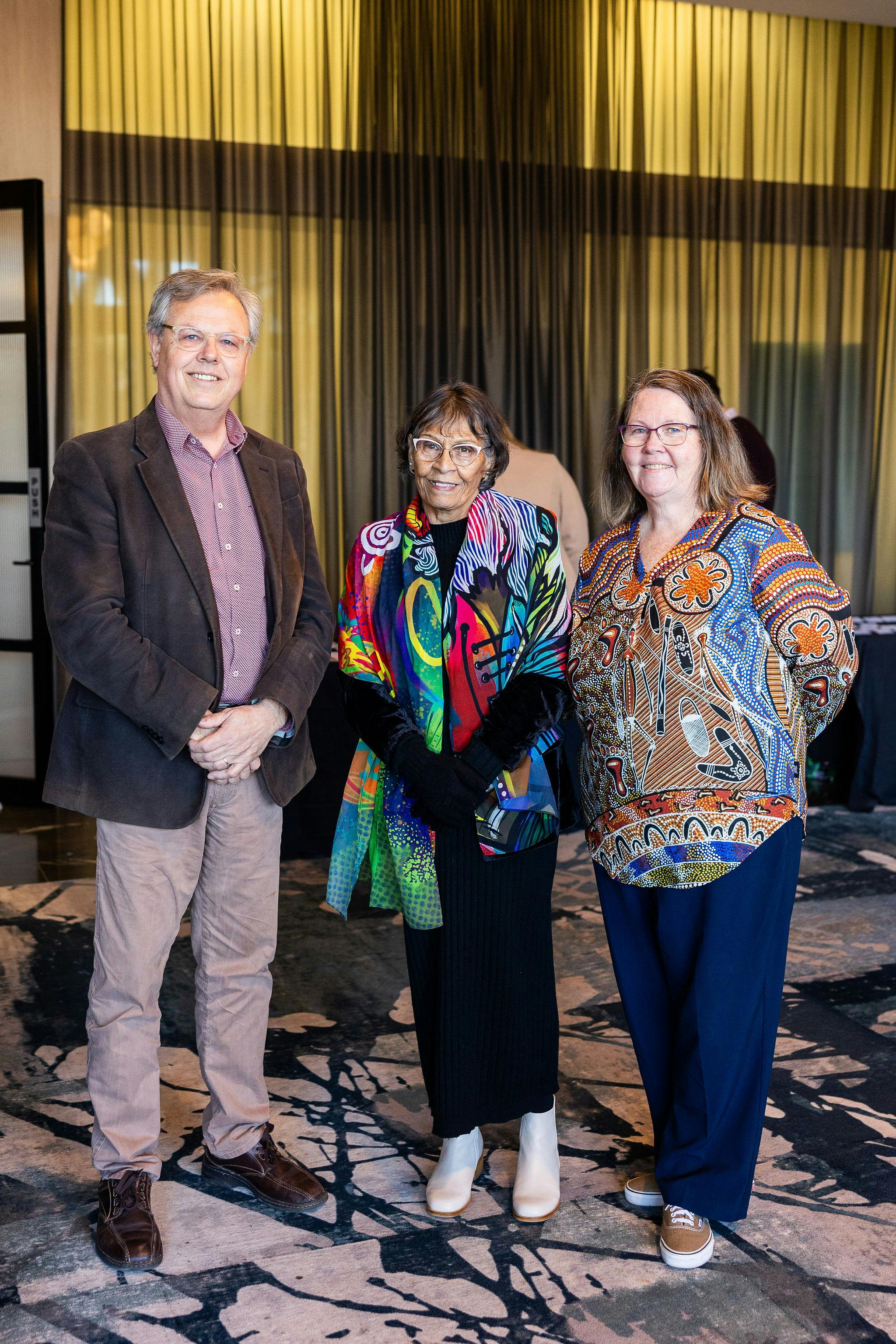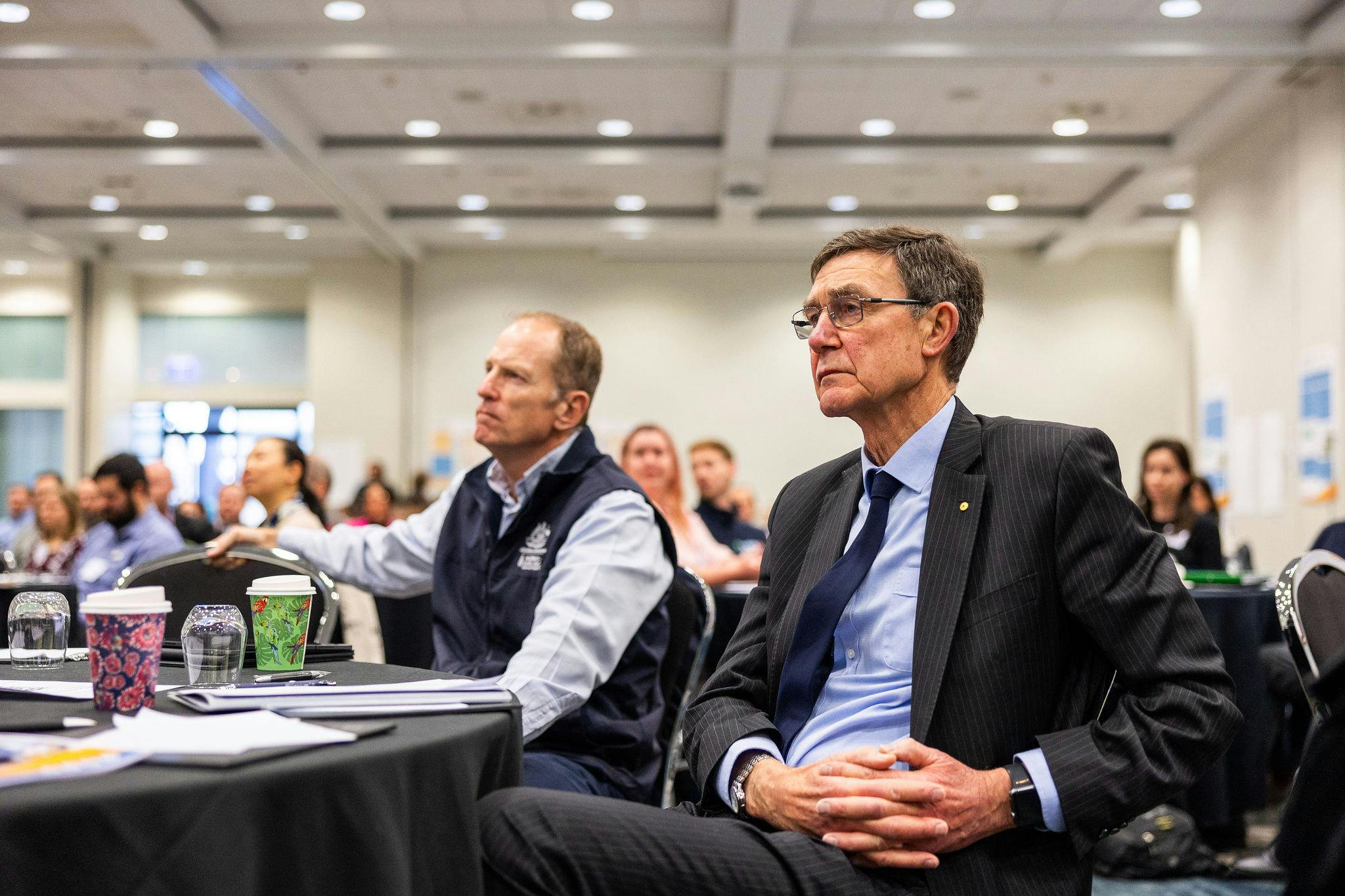MD-WERP Annual Symposium 2023
On 19-20 July 2023, the Murray–Darling Water & Environment Program held its second annual symposium at the Canberra Rex Hotel, and what a great event! The symposium brought together nearly 180 (130 in person and nearly 50 online) scientists, researchers, government and end-users to exchange ideas, knowledge and experiences of science in the Basin.
To better understand how MD–WERP research outputs fit into the wider water reform journey, Authority Chair, Sir Angus Houston, addressed the symposium to outline the Roadmap to the 2026 Basin Plan Review. Attendees also heard about government priorities from the Department of Climate Change, Energy, the Environment and Water’s water policy division and First Nations water policy branch. MDBA Chief Executive, Andrew McConville, chaired a great MD–WERP Governing Panel Q&A session where he put them through their paces with questions from the audience on topics such as:
Strategic research interactive poster sessions A key focus of this year’s symposium was the interactive poster sessions which enabled attendees to engage with individual research projects and researchers. Across the 2 days, 25 research projects presented information and initial findings, grouped under the program’s strategic research themes:
The sessions enabled attendees to engage with individual research projects and to look for opportunities and barriers to adopting the research outputs in their work. Based on feedback most people found this structure very useful, although some wished for more time to delve further into the projects. Tactical research projects Two recently completed tactical research projects were showcased through presentations on Day 2:
The presentations were followed by a collective Q&A session that was very engaging and showed high levels of interest in the projects. Next steps Feedback from the event has been overwhelmingly positive. Researchers and end-users across all themes enjoyed the opportunities to collaborate, network and share knowledge, and stated that the symposium helped improve their understanding of the range of MD-WERP research projects. Over the next 2 years we will see more than 100 deliverables finalised across the program, meaning a lot of important research will be developed and shared with end users and the wider public. Visit and register to Stay Informed about our progress on the main program webpage (getinvolved.mdba.gov.au/md-werp). For more information or questions, email mdwerp@mdba.gov.au. |



